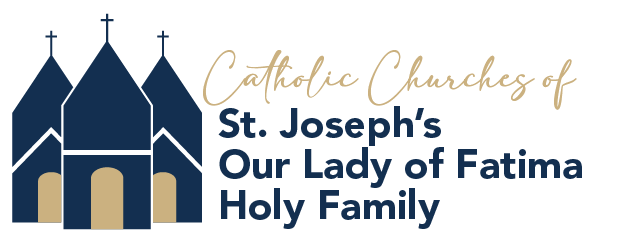Weekly Message
from Fr. Eli
Dear Parishioners,
Recently Bishop Daniel with the approval of the presbyteral council (which I serve on) approved a policy regarding the parish trustees that serve in each parish in our diocese. You may or may not know that each parish has a corporate board. This board is responsible for the operation of the parish corporation. The corporate board is made up of the bishop, the vicar general and the pastor along with two lay trustees. In practice the pastor and the lay trustees do most of the work on the ground. In the policies of the diocese the trustees had terms, but in most parishes that wasn’t being followed. Over time some parishes have had the same trustees for many years. Now with this new policy trustees will serve a two- year term which can be renewed twice for a total of 6 years. After that amount of time a new trustee would need to be appointed. At times there might be exceptions made, but we have been asked to follow this new policy. I am very grateful for all the trustees I have worked with. They are helpful and have assisted me. In general, I work with my trustees on the parish finance council, with decisions regarding staffing or other consultative issues for the parish. It is great to have some other voices when making important decisions. I want to thank all the trustees that have served. Here is a listing of the those who had been serving and those who will continue to serve and those who are newly appointed as of January 1st . Thank you to all who have been and are willing to serve in this capacity. It is a great asset to a parish to have good trustees.
| Parish | Had Served | Continue to Serve | Newly Appointed |
|---|---|---|---|
| St. Joseph's | Mike Aulie, Doreen Miller-Fish | Chris Ruttger, Janel Lewandowski | |
| OLF | Ed Kirk | Dan Nickols | Jean Olson |
| Holy Family | Bef Myers, Richard Zak |
A reminder that I will be gone next weekend (Feb. 14-15). I am visiting a friend who serves in the military… it just so happens he serves in AZ. Fr. Joe Sirba will be covering the Masses in my absence on the weekend.
OLF is beginning their floor project next week. We will be replacing the carpet in the sanctuary and nave with laminate tile. The carpet is looking a little rough in a few spots. It also makes it easier to clean and if the Eucharist is ever spilled or falls, it makes it much easier to clean up. This will necessitate some flexibility with our schedule. We will keep you posted if any adjustments need to be made. For now, the plan is to do the back and altar area the week of Feb 16-20, and the front area Feb 23-27. Note there is still a scheduled Ash Wednesday Mass, and stations during those weeks.
During the Lenten season we will be offering an opportunity to do the total consecration to Jesus through Mary according to St. Louis deMontfort. It’s a practice that is encouraged by many saints and has a rich history in the Church. We will begin on Friday, February 20th after the 8 am Mass, and each day after Masses there will be a public recitation of the prayers and readings. This may be a bit challenging to maintain, but I think it’s a nice thing to do for those who want to meet with others for the devotion. You may also elect to do the consecration preparation on your own, or renew your consecration if you have already done it. Every year I renew my consecration on March 25th which is the solemnity of the Annunciation. If you don’t know much about what the consecration is, that’s okay. The first time I did it I didn’t know much about it either. just knew that it was supposedly a way to get to know Mary better and by knowing her, we are led more fully to know her son Jesus.
When I did the consecration, that is when I started having a more fruitful relationship with Mary… and that in turn led me to a more intentional relationship with Jesus. So, if you are looking for something to do in Lent, this might be the thing to do this year. It’s a 33-day process to be prepared and then you do the consecration on a Marian feast day. You could elect to do this on a different day, like December 8th (Immaculate Conception) or August 15th, (Assumption). Just know this is an invitation to be closer with Mary and her son.
Stations will be offered in Lent on Friday. At OLF 4 PM stations with a meatless potluck afterwards (except 1st two Fridays of Lent there will be no meal because of the flooring project), and at SJ 5:30-6:30 PM meal and stations at 6:30 PM. Ash Wednesday is February 18th Masses are at 9 AM OLF, Noon and 6 PM SJ. This is not a holy day of obligation, but you are encouraged to come to start your Lenten journey together.
In Christ,
Fr. Eli

